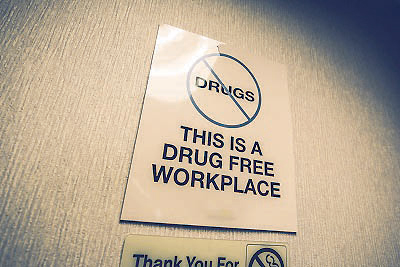

Employees of three strategic economic sectors in the Sultanate — Oil & Gas, Ports and Airports, and Electricity and Water — will be required to undergo mandatory testing for drug and alcohol abuse under new regulations introduced by the Ministry of Manpower.
The new measure, designed to strengthen workplace safety in organisations at the heart of Oman’s critical infrastructure, is set out in Ministerial Decision 133/2018 issued by the Minister of Manpower. The Decision amends certain provisions related to Occupational Health and Safety enshrined in the Oman Labour Law promulgated via Royal Decree 286/2008.

Article 24 of the Ministerial Decision states thus: The employer in the workplace facilities must, in each of the following sectors — Oil & Gas, Ports and Airports, and Electricity and Water — conduct regular and random medical tests of their employees, to ensure that they do not abuse any drugs, (intoxicating) substances or alcohol. And the employer must take action to ensure that the workplace facilities are free from these substances.
Seeking to ensure compliance by the Oil & Gas sector with the Ministerial Decision, the Oman Society for Petroleum Services (OPAL), the main umbrella grouping of oilfield operators, contractors, vendors and service providers, is preparing to introduce guidelines that will require its members to put in place policies and procedures to enforce this new regulation.
According to a key industry executive, the ‘Illegal Drugs and Alcohol Standard’, currently being finalised by OPAL, has already secured the support of Oil & Gas operators, and will be formally introduced shortly.
Hassan al Ajmi (pictured), Mukhaizna HSE Manager at Occidental Oman, who played a key role in the drafting of the Standard, said that employers have a responsibility under Omani legislation to “provide a safe working environment for all employees, contractors, visitors and local communities, as well as the security of assets and the environment from all dangers and problems presented by people under the influence of drugs, alcohol and other forms of intoxicating substances”.
Speaking at the OPAL Oil & Gas Conference 2018, which concluded at the Oman Convention & Exhibition Centre yesterday, Al Ajmi said the new OPAL standard provides “minimum requirements and guidelines for Oil & Gas companies to develop and implement programmes to prevent incidents that may result from drug or alcohol use / abuse or possession / use of prohibited items.”
Substance abuse, he warned, can have potentially severe impacts for business. It can lower productivity, increase staff turnover and absenteeism, and result in loss of reputation and revenue for clients. Around 20-25 per cent of health and safety-related breaches involve people under the influence of drugs or alcohol, he stated.
Under the new regulations, employers may conduct unannounced searches for unauthorised drugs or alcohol on company properties. The management may determine when a search or screening process may be carried out in order to provide a safe environment and also protect the company’s assets, according to Al Ajmi.
Importantly, any refusal by an employee, contracted worker or visitor to cooperate in a search is deemed a violation of the company’s Drug and Alcohol Policy and represents grounds for disciplinary action, he said.
“Additionally, where possible, searches must be conducted in the presence of the individual concerned, with one or more witnesses present and with due regard to cultural considerations.”
OPAL’s Illegal Drugs and Alcohol Standard requires companies to have policies in place that espouse a duty of care to employees while seeking to drive illegal drugs and alcohol out of the workplace. It advocates zero tolerance for the use, possession, distribution, dispensing, sale, purchase or transfer of prohibited or controlled substances. Employees reporting to work or working under the influence are liable to disciplinary action, it warns.
The Standard also prescribes guidelines with regard to the type of testing facilities, testing procedures, appointment and training of Medical Review Officers, and so on, Al Ajmi added.
Oman Observer is now on the WhatsApp channel. Click here



